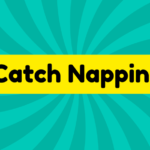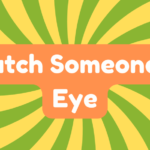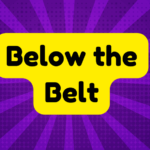A Catch-22 describes a frustrating situation where opposing rules trap you in impossible choices, often leaving you feeling helpless. The term comes from Joseph Heller's novel, where soldiers faced absurd military regulations. For example, you can't get a job without experience, but you can't gain experience without a job. This irony highlights the complexities of societal expectations. Understanding Catch-22 scenarios gives insight into our daily struggles and the paradoxes we encounter. There's much more to uncover about how this applies today.
Synonyms
When you're caught in a Catch-22, you might not realize there are other ways to describe this tricky situation. It's important to recognize these synonyms, especially when tackling ironic dilemmas or other paradoxical situations that feel hopeless. Here are three terms that might resonate:
- Catch-21 – A subtle twist, but it still conveys a similar sense of entrapment.
- Double bind – This term highlights two conflicting choices, both problematic.
- No-win situation – It underscores the futility inherent in these scenarios.
Understanding these alternatives can clarify your own experiences, illuminating the absurdity of these self-defeating circles.
Example of Sentences
Understanding various examples of a Catch-22 can really highlight how these frustrating situations often trap us in a no-win scenario. Here are a few Catch 22 scenarios that I find particularly revealing:
- You need experience to get a job, but you can't get experience without a job.
- A small business needs a loan to expand, yet banks won't lend without proven revenue.
- Parents seek childcare, but most options are full, forcing them to choose between work and family.
These absurd dilemmas demonstrate the sheer complexity of societal expectations, often leaving us feeling helpless. It's a reality that's hard to navigate.
Origin
The term "Catch-22" has roots that stretch back to Joseph Heller's novel, published in 1961, where it captures a frustrating clash of regulations faced by soldiers during World War II. Within its pages, Heller reveals the absurdity of military protocols, highlighting their historical context and literary significance. The concept arose from the character Doc Daneeka, illustrating a dilemma where one's need for safety clashes with the very rules designed to provide it. By showcasing these irrational conflicts, Heller not only critiqued wartime bureaucracy but also created a lasting term that still resonates in today's complex, rule-bound society.
Collocations
Collocations, or the way words naturally group together, play an essential role in expressing the nuances of a "Catch-22" situation. Recognizing these patterns helps clarify the paradoxes we face. Here are some common collocations related to Catch-22 scenarios and their implications:
- Caught in a Catch-22 – describing the feeling of being trapped.
- Faced with a Catch-22 – indicating unavoidable dilemmas.
- Experience a Catch-22 – highlighting personal engagement in these situations.
These phrases illustrate how deeply intertwined our decisions can become, forcing us into illogical circumstances while highlighting the absurdity of our realities. Understanding them sharpens our awareness for future challenges.
How to Use in Everyday Language
Maneuvering everyday conversations often reveals moments where we find ourselves in a Catch-22. From job hunting to family obligations, practical dilemmas crop up frequently. Here's a quick table that highlights common scenarios:
| Scenario | Dilemma | Catch-22 Example |
|---|---|---|
| Job Applications | Wanting experience but needing a job | "I can't get hired without experience!" |
| Childcare | Needing to work but needing care for kids | "I can't afford daycare without a job!" |
| Education | Balancing costs while pursuing a degree | "I need a job for tuition!" |
Recognizing these can help us navigate life with a more pragmatic lens.
Why Is It Still Relevant Today?
In today's world, Catch-22 scenarios seem all too common, manifesting in various aspects of our lives. We face societal dilemmas, whether in job searching or dealing with bureaucratic red tape. Take, for instance, the challenge of needing work experience to land a job, yet you can't gain that experience without a job. It's frustratingly ironic. Modern examples abound, from students drowning in debt for degrees that don't guarantee employment to parents stuck juggling work and childcare during frantic times. These situations highlight our daily struggles and reflect an increasingly complex reality where rational solutions seem just out of reach.







